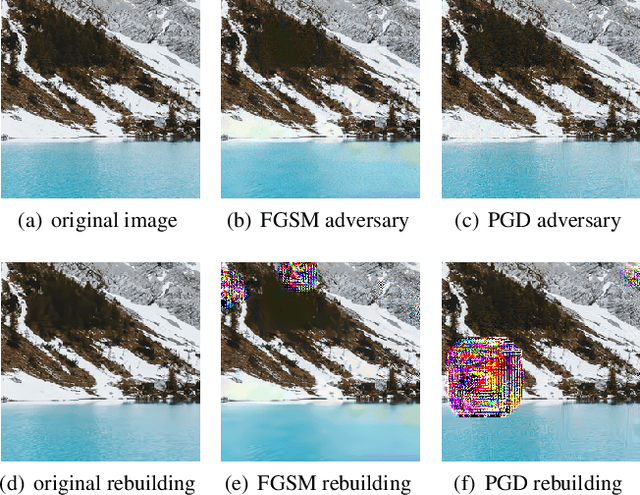Minge jing
Attack and Defense Analysis of Learned Image Compression
Jan 18, 2024



Abstract:Learned image compression (LIC) is becoming more and more popular these years with its high efficiency and outstanding compression quality. Still, the practicality against modified inputs added with specific noise could not be ignored. White-box attacks such as FGSM and PGD use only gradient to compute adversarial images that mislead LIC models to output unexpected results. Our experiments compare the effects of different dimensions such as attack methods, models, qualities, and targets, concluding that in the worst case, there is a 61.55% decrease in PSNR or a 19.15 times increase in bit rate under the PGD attack. To improve their robustness, we conduct adversarial training by adding adversarial images into the training datasets, which obtains a 95.52% decrease in the R-D cost of the most vulnerable LIC model. We further test the robustness of H.266, whose better performance on reconstruction quality extends its possibility to defend one-step or iterative adversarial attacks.
 Add to Chrome
Add to Chrome Add to Firefox
Add to Firefox Add to Edge
Add to Edge